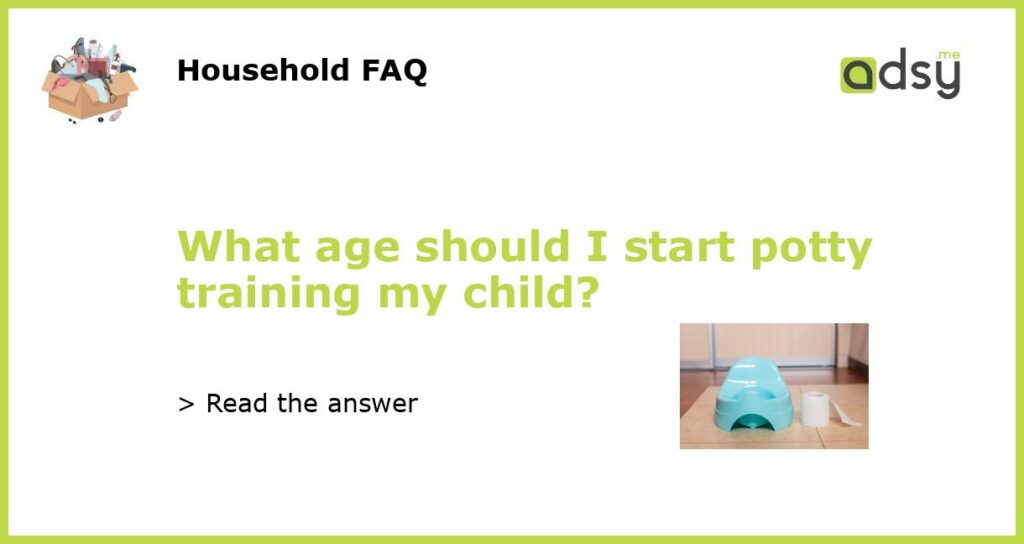When is the right age to start potty training?
Potty training is an important developmental milestone for every child, but determining the right age to start can be a challenge for parents. While some may think that there is a specific age at which every child should be potty trained, the truth is that there is no one-size-fits-all answer. Every child is different, and their readiness for potty training can vary. However, there are some general guidelines that can help you determine when to start the potty training process.
Look for signs of readiness
Before you can begin potty training your child, it is important to look for signs of readiness. Some common signs include:
- Showing interest in the bathroom and what family members do in there
- Having regular bowel movements
- Being able to communicate and follow simple instructions
- Showing discomfort when wearing a dirty diaper
If your child displays these signs, it is likely that they are ready for potty training. However, keep in mind that every child is different and may show these signs at different ages. It is important to be patient and not rush the process.
Around the age of 2
Most children are ready for potty training between the ages of 2 and 3. This is a stage when they have developed some control over their bladder and bowel movements and are able to communicate their needs to some extent. At this age, children are also starting to become more aware of their body and their surroundings.
While starting potty training around the age of 2 is a common approach, it is important to remember that every child develops at their own pace. Some children may be ready earlier, while others may need more time. It is important to be flexible and adapt to your child’s individual needs.
Factors to consider
In addition to your child’s age and signs of readiness, there are several other factors to consider when deciding when to start potty training:
- Family dynamics: If there are younger siblings on the way or other family circumstances that may impact the potty training process, it may be beneficial to start earlier.
- Timing: Potty training requires consistency and dedication, so it may be helpful to choose a time when you can devote more attention to the process, such as during a vacation or a period with fewer commitments.
- Childcare arrangements: If your child attends daycare or has a regular caregiver, it is important to coordinate with them and ensure that they are on board with the potty training process.
Avoiding pressure and expectations
It is important to remember that every child is different and may progress at their own pace. Avoid putting too much pressure or setting unrealistic expectations for your child during the potty training process. Instead, focus on creating a supportive and positive environment where your child can learn and grow.
Remember that accidents are a normal part of the potty training process, and it is important to be patient and understanding. Praise your child’s efforts and offer reassurance when accidents happen.
In conclusion
Potty training is a developmental milestone that every child reaches at their own pace. While there is no specific age at which every child should be potty trained, most children are ready between the ages of 2 and 3. Look for signs of readiness and consider other factors such as family dynamics and childcare arrangements when deciding when to start. Remember to be patient and supportive throughout the process, and avoid putting pressure or setting unrealistic expectations. Potty training can be a challenging time for both parents and children, but with the right approach, it can also be a rewarding and successful experience.






